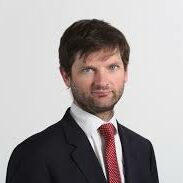“The MONOPOLY judgment will reassure European trademark owners insofar as it clearly states that refiling trademarks is not per se prohibited. However, the motivation for the refiling will be scrutinized for evidence of bad faith.”
 Toy maker Hasbro has been rebuked by the EU General Court, after it was found to have applied to register an EU trademark (EUTM) for MONOPOLY in bad faith.
Toy maker Hasbro has been rebuked by the EU General Court, after it was found to have applied to register an EU trademark (EUTM) for MONOPOLY in bad faith.
The company has owned the MONOPOLY brand since acquiring Parker Bros in 1991. It filed the EUTM application, for various goods and services in classes 9, 16, 28 and 41, in April 2010 and the mark was registered in 2011.
Hasbro owned three earlier EU word marks for MONOPOLY, which were registered in 1998, 2009 and 2010 and are still live. These covered some of the same goods and services as those specified in the 2010 application.
After the latest application was registered, it was attacked by a Croatian company called Kreativni Doga?aji, which argued that the application was a “repeat filing” of the earlier marks and “was aimed at circumventing the obligation to prove genuine use of those marks.”
Under EU trademark law, there is no requirement to prove use or intent to use at the time of filing. Once a mark is registered, there is a five-year grace period before trademark owners can be required to prove genuine use of the mark (or legitimate reasons for non-use). Genuine use may also have to be shown if a mark is used as the basis for an opposition action after the initial five-year period.
In the MONOPOLY case, following a rare oral hearing, the EUIPO Second Board of Appeal declared the EUTM invalid insofar as it covered the same goods and services as the previous marks. It said Hasbro had acted in bad faith when it filed the application.
EU General Court Judgment
On April 21, the EU General Court rejected Hasbro’s appeal and upheld the lower decision, finding that Hasbro had “intentionally sought to circumvent the proof of use rule to derive an advantage.”
It said there is no prohibition on re-filing trademarks as such, but in this case “the aim of the applicant’s repeat filing was, inter alia, by its own admission, that of not having to prove use of the contested mark, thus extending, with regard to the earlier marks, the five-year grace period.” Specifically, it had gained an advantage in two sets of opposition proceedings.
Moreover, Hasbro’s argument that the repeat filings were designed to reduce its administrative burden was not persuasive given the additional costs and burden of maintaining the earlier marks covering overlapping goods and services.
The Court also found against Hasbro on a minor point concerning the classification of the goods: it agreed with the Board of Appeal that “gaming machines; slot machines; playing cards” covered by the contested mark were identical to “games and playthings” covered by one of the earlier marks.
Hasbro can apply to appeal the decision to the EU Court of Justice (CJEU). However, there is now a filter on such appeals from the EU General Court, and few if any cases have been accepted since it was introduced in 2019. It is highly likely therefore that this decision will be final.
Beware Bad Faith
Bad faith arguments are prominent in trademark cases in Europe at the moment, perhaps reflecting attempts to deal with perceived cluttering of the register. Last year’s CJEU judgment in the SkyKick case partly concerned the question whether filing a trademark application with no intent to use it constitutes bad faith. In that case, the SKY trademarks were eventually found to have been filed in bad faith in part, and they were partially invalidated (though Sky was still largely successful in its infringement claim).
The MONOPOLY judgment will reassure European trademark owners insofar as it clearly states that refiling trademarks is not per se prohibited. However, the motivation for the refiling will be scrutinized for evidence of bad faith.
In this case, a member of Hasbro’s staff testified before the Board of Appeal that “being able to rely upon one registration without the need to prove use” was a benefit of refiling, and that led to the finding of bad faith. Hasbro’s further arguments were essentially that first, it did not think it was doing anything wrong and, second, everyone else does it anyway. These were summarily rejected by both the Board and the General Court.
Image Source: Deposit Photos
Photography ID:41658261
Copyright:derejeb

![[IPWatchdog Logo]](https://ipwatchdog.com/wp-content/themes/IPWatchdog%20-%202023/assets/images/temp/logo-small@2x.png)

![[Advertisement]](https://ipwatchdog.com/wp-content/uploads/2024/04/Patent-Litigation-Masters-2024-sidebar-early-bird-ends-Apr-21-last-chance-700x500-1.jpg)

![[Advertisement]](https://ipwatchdog.com/wp-content/uploads/2021/12/WEBINAR-336-x-280-px.png)
![[Advertisement]](https://ipwatchdog.com/wp-content/uploads/2021/12/2021-Patent-Practice-on-Demand-recorded-Feb-2021-336-x-280.jpg)
![[Advertisement]](https://ipwatchdog.com/wp-content/uploads/2021/12/Ad-4-The-Invent-Patent-System™.png)







Join the Discussion
No comments yet.